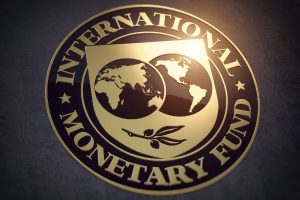The International Monetary Fund (IMF) has called for increased international funding to help sub-Saharan African countries tackle pressing macroeconomic challenges. The call was made during the presentation of the IMF Fall 2024 Regional Economic Outlook: Sub-Saharan Africa at the Lagos Business School on Thursday.
Athene Laws, an economist from the IMF’s African Department, highlighted that the region’s economic outlook remains clouded by multiple uncertainties, including domestic, regional, and global risks. Among the major challenges cited were climate change impacts, such as prolonged dry spells, catastrophic floods, food insecurity, and epidemic outbreaks. Additionally, the region faces volatility in commodity prices, potential slowdowns in advanced economies, and fluctuations in global financial markets.
Laws emphasized that sub-Saharan Africa would continue to face a difficult economic environment, marked by high inflation, elevated borrowing costs, foreign exchange pressures, and persistent fragility in certain countries. She stressed that tailored policy responses would be crucial for addressing these imbalances, with a focus on protecting vulnerable groups. International financial support, according to Laws, would play a pivotal role in helping countries navigate these challenges.
Since 2020, the IMF has disbursed over $60 billion to the region, with more than $5 billion released in 2024 alone. Currently, 26 countries in sub-Saharan Africa have ongoing IMF financing arrangements, including 11 under the Resilience and Sustainability Facility (RSF), which provides long-term, affordable financing to address climate change and pandemic preparedness.
During the panel discussion, IMF Deputy Director Catherine Pattillo called for deeper reforms to drive inclusive growth in the region. She pointed to the need for energy sector reforms, addressing security challenges, and fostering widespread productivity gains and job creation. Pattillo stressed that growth must be broad-based, ensuring benefits reach all sectors of society.
Bismarck Rewane, CEO of Financial Derivatives Company, emphasized the importance of accelerating reforms in Nigeria, particularly in governance, power supply, telecommunications, and digital technology. He also called for steps to reduce income inequality and address security concerns.
Olusegun Omisakin, Chief Economist of the Nigerian Economic Summit Group, underscored the importance of effective communication in the policy process. He criticized the lack of communication around policy initiatives, citing the currency redesign in Nigeria as an example of a policy rollout without adequate consultation or communication with stakeholders.
Professor Chris Ogbechie, Dean of the Lagos Business School, praised the IMF report for offering valuable insights into the economic challenges facing sub-Saharan Africa and uncovering opportunities for sustainable growth and development.
The IMF’s report also noted that monetary policy in the region will vary. While most countries have kept rates steady, several have tightened policies in 2024 to combat elevated inflation. Countries with inflation closer to target may begin easing monetary policies in coordination with broader economic strategies.

